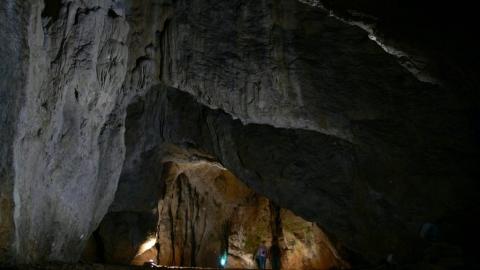Cave in Bulgaria Sheds Light on Early Humans

The findings of excavations at the Bacho Kiro cave near Dryanovo in central Bulgaria suggest that the chronological overlap between humans and Neanderthals was longer than previously thought, said an article published in the science journal Nature on Monday.
It is now estimated that modern humans were present in Europe at least 46,000 years ago and that they had both biological and cultural interactions with Neanderthals. Before, scholars have suggested a period of not more than 3,000 years, said the article in Nature by researchers Jean-Jacques Hublin, Nikolay Sirakov and Tsenka Tsanova.
"The excavations yielded a wealth of bone artefacts, including pendants manufactured from cave bear teeth that are reminiscent of those later produced by the last Neanderthals of western Europe," the researchers wrote.
"These finds are consistent with models based on the arrival of multiple waves of H. sapiens into Europe coming into contact with declining Neanderthal populations," they added.
Hublin, from the Max Planck Institute for Evolutionary Anthropology in Leipzig, told The Guardian newspaper these are the oldest signs of human activity that have been found in Europe so far.
The tools and the human remains found in the cave have gone through various processes including sample selection for radiocarbon dating, bone pretreatment, collagen fingerprinting. The study represents one of the largest and extensive datasets from a single Palaeolithic site.
Bacho Kiro cave is a popular tourist site named after Kiro Zanev, also known as Bacho Kiro, a local teacher, folklorist and revolutionary who lived between 1835 and 1876.
- Log in to post comments










